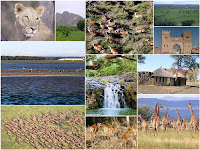Comoro Islands
 "Potentially a holiday paradise with picture-postcard beaches, the Comoros islands are trying to consolidate political stability amid tensions between semi-autonomous islands and the central government." TheBBC
"Potentially a holiday paradise with picture-postcard beaches, the Comoros islands are trying to consolidate political stability amid tensions between semi-autonomous islands and the central government." TheBBC"The Comoros islands are wrapped in a fragrant blend of ylang-ylang oil, Arabic aesthetics, African warmth and French chic. Not only this, but they have a colourful history of sultans and soothsayers, plantation owners and eloping princesses." Lonely Planet
"Comorian residents call their Country Masiwa, "the islands," or refer to the individual name of each island. Zisiwa za Komor is a translation of the French words for the country. "Comoro" comes from the Arabic qumr, "the moon" or qamar "whiteness".
Although Comorians practice Sunni Islam of the Chafeite rite, their social organization is matrilineal and residency is matrilocal. Social life is characterized by a widespread system of exchange, which, in turn, creates customary ceremonies and rituals (aida, shungu), particularly the Great Weddings (ndoola nkuu, arusi). Everyone participates as a member of a given lineage or age group, or as a member of a gender-specific association." Everyculture.com
More on The Comoros: National Geographic, ksu.edu, Infoplease, World Travel Guide, arab.de, Travel Notes, Picasa
Image: ksu.edu


